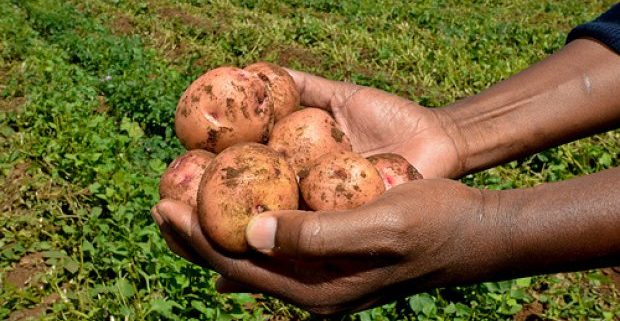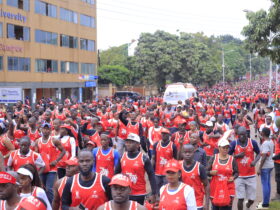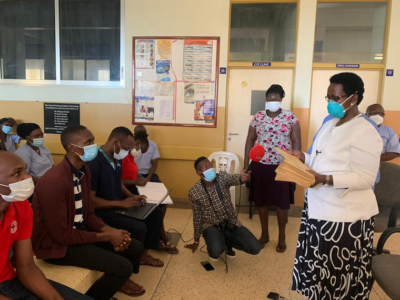
The persistent dry spell in Kabarole district is hindering the success of the Multi-Sectoral Food Security and Nutrition Project that was established in 2015.
The district benefited from the Uganda Multisectoral Food Security and Nutrition Project about two years agoo with the main aim of the project is to address the problem of malnutrition in school-going children and women of child-bearing age.
The six-year project worth Shs10 Billion shillings is funded by the Global Agriculture and Food Security under the supervision of the World Bank. The project which is in 15 districts is being implemented by the ministries of Agriculture, Health and Education.
However a visit to some schools visited reveals that most of the plants in their demonstration gardens have withered due to a prolonged dry spell.
At St Peter’s and Paul primary school for example, the head teacher Angelica Kabasita says they were stopped from irrigating the food crops with tap water because it is treated with chemicals that would affect the crops.
She says that most crops wither during dry seasons because there is no water source in the area.
However, Kabasita notes that despite the challenges, during this on-going harvesting season, they have harvested, 50 kilograms of carrots, 80 kilograms of beans on their one acre of land.
She also discloses that they have selected 30 pupils to feed on the harvested crops that are prepared every lunchtime at school so as to test their nutritional value.
At Kyebambe Model Primary School, George Mwesige, the agriculture teacher and in-charge of the project says some crops are stolen from the gardens while still immature.
“We would be getting a lot of produce but thieves are many here. I think because we are in town and many people around don’t have gardens,” Mwesige says.
Recently schools implementing the project received 1.46 billion shillings worth of garden tools and seeds while the district received 464 million shillings that is used for capacity building and paying salaries.
Paul Katiisa, the Kabarole district project assistant, says that the harvest from the various crops like beans, soya beans, eggplants, green papers, orange flesh sweet potatoes are consumed by the pupils while the rest given to community members.











